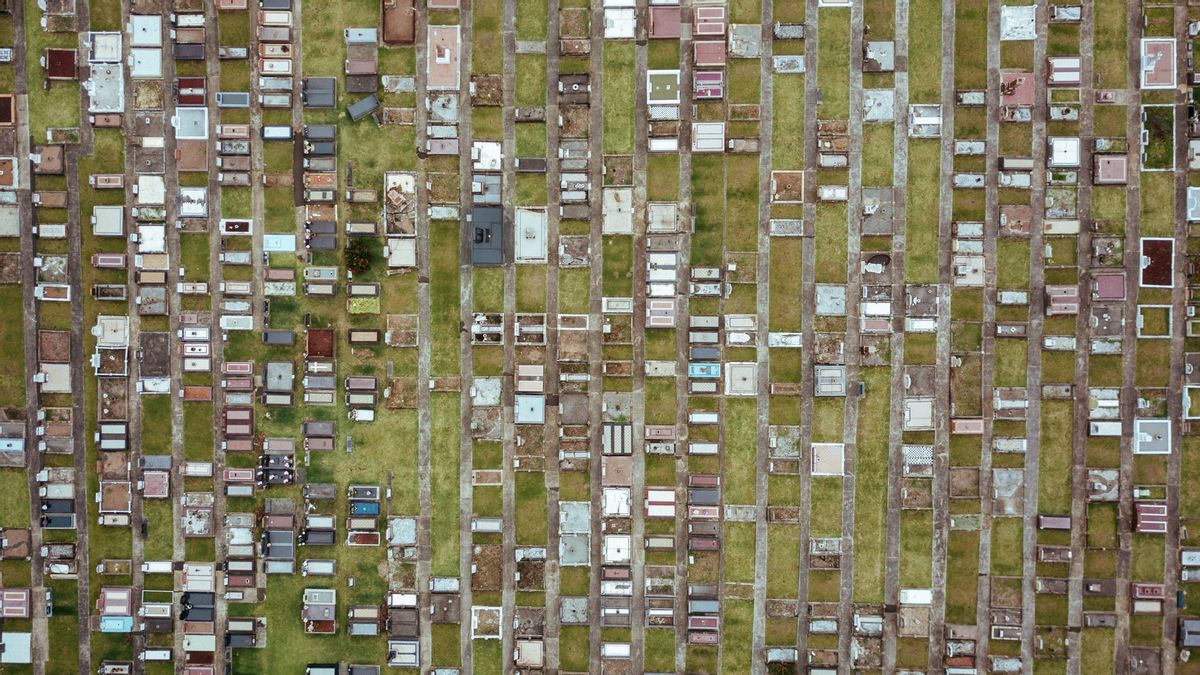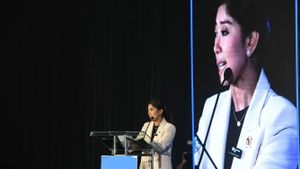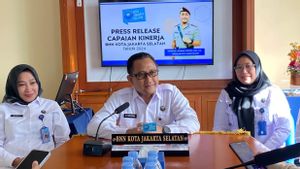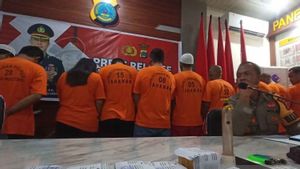JAKARTA - Amnesty International submitted a report about the brutal killing of a large number of civilians in the Tigray region, Ethiopia. The massacre took place amidst fighting between the local and federal governments.
The report was submitted on Thursday, November 12, 2020. A murder was reported in a town called Mai-Kadra on Monday night, November 9.
Digitally verified and geographically located photos and videos show bodies strewn across the city. The corpses were carried on stretchers.
"We have confirmed the massacre of a large number of civilians, who appear to be day laborers who were not at all involved in the ongoing military offensive," said Deprose Muchena, Amnesty International's East and South Africa Director.
"This is a terrible tragedy that only time will tell because communications on Tigray remain closed," Muchena was quoted as saying by the official website, Amnesty.org, Friday, November 13.
Witnesses in Mai-Kadra, who provided food and other supplies, told Amnesty International that they saw bodies and injured victims. The victim's serious injuries appeared to have been caused by sharp weapons. Amnesty International is said to be assigning an independent pathologist to confirm the report.
"Those who were injured told me that they were attacked with machetes, axes and knives. You can also tell from the wounds that those who died were attacked by sharp objects," an eye witness who declined to give his name told Amnesty International.
Ethiopia's federal government declared "war" with the region's ruling party, the Tigray People's Liberation Front (TPLF), earlier this month. Ethiopian Prime Minister (PM) and Nobel laureate Abiy Ahmed have ordered the Ethiopian Defense Force to lead a "law enforcement operation" in the area.
The operation in question includes air strikes. However, until now no independent party has claimed responsibility for the killings in Mai-Kadra or the number of deaths.
To quote CNN, Friday, November 13, the current tensions in Tigray started in August, when Abiy's government postponed the election because the risk of contracting COVID-19 was too high. Officials on Tigray held their own elections in September, with more than two million people voting.
In retaliation, the federal government withheld funds from the TPLF leadership in the Mekelle, promising to send them directly to local leaders in exchange. This sparked a growing series of accusations and retaliatory rhetoric between the regional and federal governments.
Last week, the Ethiopian federal government declared a six-month state of emergency and launched a broad security force. Parliament then voted to lift prosecution immunity for 39 DPR members, including several high-ranking TPLF members and regional president Tigray Debretsion Gebremichael. The TPLF accuses the federal government of unfairly cleaning up its party members.
About 150 people from "diverse ethnic" backgrounds were also detained in Addis Ababa and various parts of the country. The arrests were made on charges of collusion with the TPLF to incite "conflict and carry out terror attacks," according to another statement from the task force overseeing the conflict.
Refugee crisisEthiopian PM Abiy came to power in 2018 with a reformist agenda that promises to bridge government divisions. But under his leadership, ethnic and political tensions increased significantly in parts of the country, often with deadly consequences.
On Tuesday, November 10, state-affiliated broadcaster Fana TV reported that the Ethiopian federal army had killed 550 enemy fighters. However, the identities and affiliations of the suspected fighters are not clear.
Since the escalation of fighting between the government and regional forces on Tigray, at least 11,000 people have fled the region and entered neighboring Sudan, according to the UN refugee agency, UNCHR.
During a press conference on Thursday 12 November, UNCHR representative in Sudan, Axel Bisschop, said the agency estimates that half of the refugees are children. According to Bisschop, Ethiopians cross the river to Sudan by several boats at one of the two border crossings.
"The people who came with very few concessions, most of them came in good health, we got information from some who were injured and have been taken to the nearest clinic for treatment," Bisschop said.
The English, Chinese, Japanese, Arabic, and French versions are automatically generated by the AI. So there may still be inaccuracies in translating, please always see Indonesian as our main language. (system supported by DigitalSiber.id)













